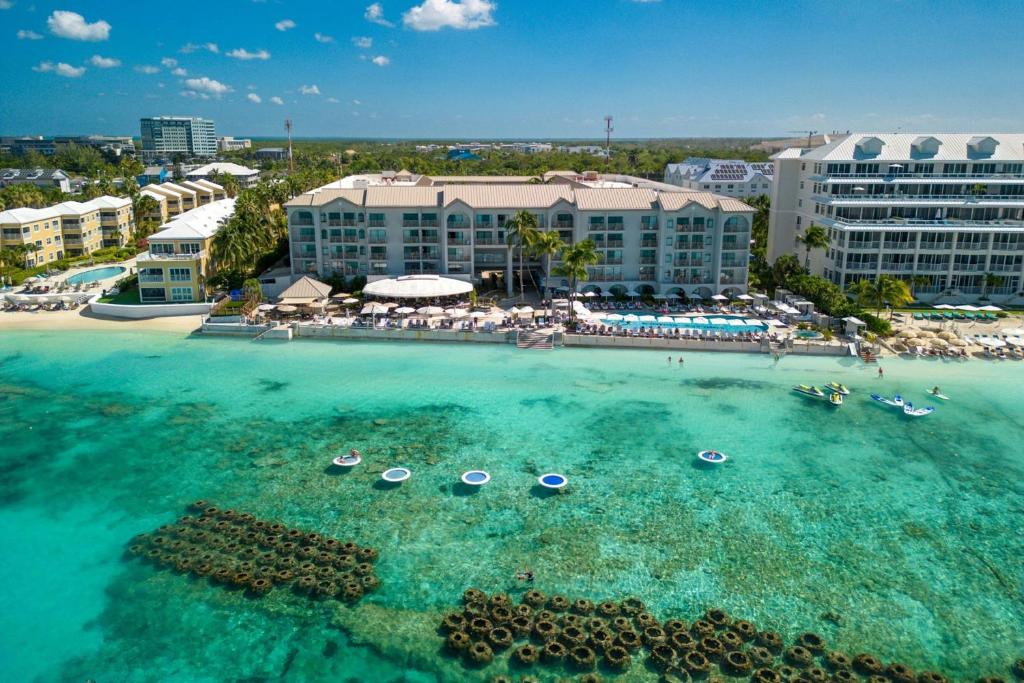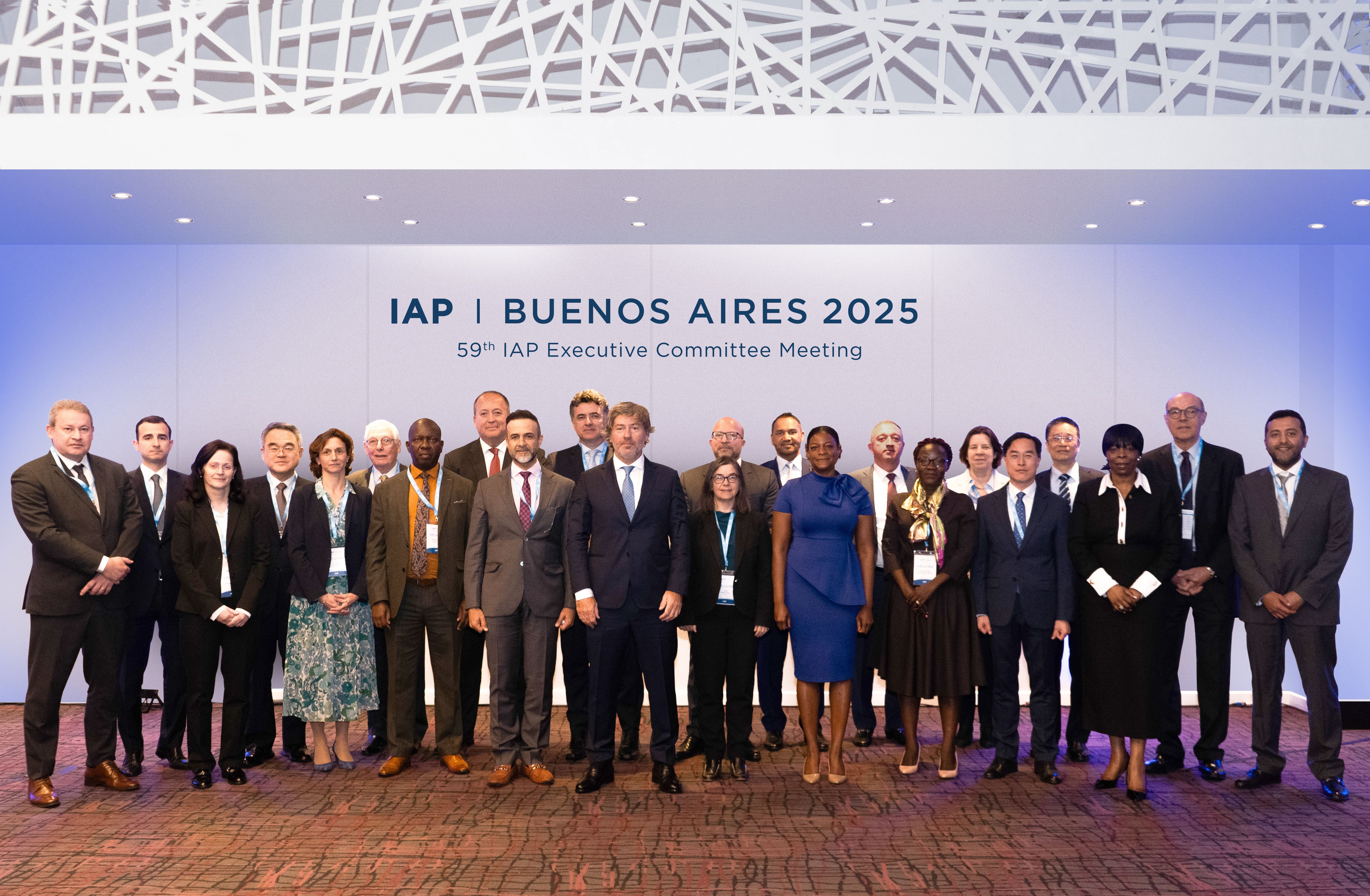
ABOUT THE CONFERENCE
WHEN AND WHERE
|
The 7th IAP Regional Conference for the North American and Caribbean Region will take place in Grand Cayman in the Cayman Islands from 9th November to 12th November 2025. The conference will be hosted by the Office of the Director of Public Prosecutions. The conference will be held at The Grand Cayman Marriott Resort which is situated on Seven Mile Beach, only 3.1 miles from Owen Roberts International Airport (‘GCM’). This island hotel boasts an oceanfront location and is host to numerous conferences and large events. |
 |
ABOUT THE VENUE
GRAND CAYMAN, CAYMAN ISLANDS
Nestled in the western Caribbean Sea, the Cayman Islands is a British Overseas Territory renowned for its political stability, sophisticated infrastructure, and world-class hospitality. Comprising Grand Cayman, Cayman Brac, and Little Cayman, the Islands combine the charm of a laid-back island lifestyle with a robust legal and financial framework rooted in British common law traditions. With a history shaped by seafaring, resilience and a vibrant cultural heritage, the Cayman Islands today stands as a premier destination for international conferences — offering state-of-the-art facilities, ease of access, and the stunning natural beauty of turquoise waters, coral reefs, and warm Caribbean breezes.
ABOUT THE OFFICE OF THE DIRECTOR OF PUBLIC PROSECUTIONS
The Office of the Director of Public Prosecutions was created by section 57 of the Cayman Islands Constitution Order 2009. The DPP is responsible for instituting and undertaking criminal proceedings against any person before any court in respect of any offence against any law in force in the Cayman Islands.
Pursuant to section 4 of the Criminal Justice (International Cooperation) Act (2023), the DPP is also the Central Authority for the jurisdiction, responsible for incoming and outgoing requests for mutual legal assistance.
The DPP is also the principle legal adviser to the Cayman Islands Government on all criminal matters.
ABOUT THE IAP
The International Association of Prosecutors (IAP) has a longstanding tradition of organising conferences to provide fora for prosecutors to network with colleagues from around the world and exchange best practices and experiences.
GENERAL INFORMATION ABOUT THE IAP
The IAP is a non-governmental, non-political organisation, and the only worldwide organisation for prosecutors. The IAP has over 180 organisational members - including approximately 130 prosecuting authorities, 40 associations of prosecutors, and 10 international organisations. Together with its individual membership the IAP represents over 250,000 prosecutors in over 170 different countries and territories around the world.
The IAP was established on 06 June 1995 at the United Nations Office in Vienna and was formally inaugurated in September 1996 at its first General Meeting in Budapest. The main impetus leading to its formation was the rapid growth in transnational crime, particularly drug trafficking, money laundering and fraud. An obvious need for enhanced international cooperation between prosecutors was emerging, particularly in the fields of mutual legal assistance, extradition and asset recovery.
Since its inception, the IAP has been committed to setting and raising standards of professional conduct and ethics for prosecutors worldwide, and to the promotion of the rule of law, fairness, impartiality and respect for human rights. The IAP also aims to improve and strengthen international cooperation to combat crime by building networks between prosecuting agencies and supporting an increased pace and efficiency in the transfer of information and the provision of mutual legal assistance.
IAP OBJECTIVES
The IAP Constitution sets out the following Objects of the IAP:
1. To promote the effective, fair, impartial and efficient prosecution of criminal offences.
2. To respect and seek to protect human rights as laid down in the Universal Declaration of Human Rights proclaimed by the General Assembly of the United Nations on 10 December 1948.
3. To promote high standards and principles in the administration of criminal justice, including procedures to guard against or address miscarriages, in support of the rule of law.
4. To promote and enhance those standards and principles which are generally recognised internationally as necessary for the proper and independent prosecution of offences.
5. To assist prosecutors internationally in the fight against organised or other serious crime, and for that purpose:
-
-
- to promote international cooperation in gathering and providing evidence; in tracking, seizing and forfeiting the proceeds of serious crime; in the prosecution of fugitive criminals;
- to promote speed and efficiency in such international cooperation
-
6. To promote measures for the elimination of corruption in public administration.
7. To promote the professional interests of prosecutors and to enhance recognition of their crucial role in achieving criminal justice.
8. To promote good relations between individual prosecutors and prosecution agencies; to facilitate the exchange and dissemination among them of information, expertise and experience; and, to that end, to encourage the use of information technology.
9. To promote examination of comparative criminal law and procedure and to assist prosecutors engaged in justice reform projects.
10. To cooperate with international juridical organisations in furtherance of the foregoing objects.
IAP OFFICERS AND ORGANS
The Executive Committee is the governing body of the IAP, subject to the authority of the General Meeting which is the body of supreme authority in the IAP. The IAP elects a President, up to nine Vice-Presidents and up to twenty-one ordinary members of the Executive Committee. The membership of the Executive Committee reflects the regions in the world where the IAP has members.
The Executive Committee appoints a Secretary-General, who is the Chief Executive, a General Counsel, who is the principal professional representative responsible for the professional programme of the IAP and who provides legal advice and counselling to the IAP, and an Executive Director, responsible for the day-to-day management of the IAP, to include finances, technical support, communication, membership administration and community outreach.
The Senate of the IAP consists of past members of the Executive Committee who elect to join the Senate upon their departure from the Executive Committee, and who are, in the opinion of the President and the Executive Committee, fit and proper persons of good standing and repute in the Association. The Senate operates in conjunction with the President and the Executive Committee. The Senate serves as an advisory body and executes powers to promote the IAP Objects.
The Secretariat of the IAP is based in The Hague, The Netherlands.
IAP EXECUTIVE COMMITTEE 2024 - 2025

| President | |
| Juan Bautista Mahiques, Prosecutor General of the Autonomous City of Buenos Aires, Argentina | |
| Vice-Presidents | |
| 1. | Kamran Aliyev, Prosecutor General of the Republic of Azerbaijan |
| 2. | Lloyd Babb, Director of Public Prosecutions, Northern Territory, Australia |
| 3. | Shamila Batohi, National Director of Public Prosecutions, South Africa |
| 4. | Manuel Pinheiro Freitas, Director General of the Superior Law School of the Public Prosecution, Brazil |
| 5. | Giorgi Gogadze, Deputy Chief Prosecutor and National Member of Georgia at Eurojust |
| 6. | Michael Leitner, Deputy Procurator General, Austria |
| 7. | Nayef Mahmood, Senior Advocate General, Bahrain |
| 7. | Kathleen Roussel, Former Director of Public Prosecutions and Former Deputy Attorney General, Canada |
| 8. | Tong Jianming, First Deputy Prosecutor General, Supreme People's Procuratorate of People's Republic of China. |
| Immediate Past President | |
|
Cheol-Kyu Hwang, Chair Professor of Kyonggi University and Attorney-at-Law |
|
| Ordinary Members of the Executive Committee | |
| 1. | Jane Abodo, Director of Public Prosecutions, Uganda |
| 2. | Rashid Ahmine, Director of Public Prosecutions, Mauritius |
| 3. | Mohammed Hassan AbdulRahim, Advocate General, Dubai, United Arab Emirates |
| 5. | Abdulaziz Farhad Alqorony, Prosecutor, Public Prosecutions, Kingdom of Saudi Arabia |
| 6. | Immaculate Angutoko Draru, President, Uganda Association of Prosecutors |
| 7. | Stefan Blättler, Attorney General, Switzerland |
| 8. | Sally Dowling SC, Director of Public Prosecutions, New South Wales, Australia |
| 9. | Renato Finocchi Ghersi, Former Advocate General, Italy |
| 10. | Jeanette Manning, Director of NAGTRI, United States of America |
| 11. | Kate Matthews, President, The Canadian Association of Crown Counsels, Canada |
| 12. | Manoel Victor Sereni Murietta e Tavares, Public Prosecutor, State of Pará, Brazil |
| 13. |
Grace Ononiwu CBE, Director General Legal Delivery, CPS, England and Wales |
| 14. | Laureline Peyrefitte, Director of Criminal Affairs and Pardons, MoJ, France |
| 15. | Catherine Pierse, Director of Public Prosecutions, Ireland |
| 16. | Phairach Pornsomboonsiri, Attorney General, Thailand |
| 17. | Ip Son Sang, Deputy Prosecutor General, Macao, SAR PRC |
| 18. | Woo Jung Shim, Former Prosecutor General, Republic of Korea |
| 19. | Edina Soltesz, Public Prosecutor, Head of Division for International Cooperation, Hungary |
| 20. | Bruce Swartz, Former Deputy Assistant Attorney General and DoJ Counsellor for International Affairs, United States of America |
| 21. | Angel Valencia, Prosecutor General, Chile |